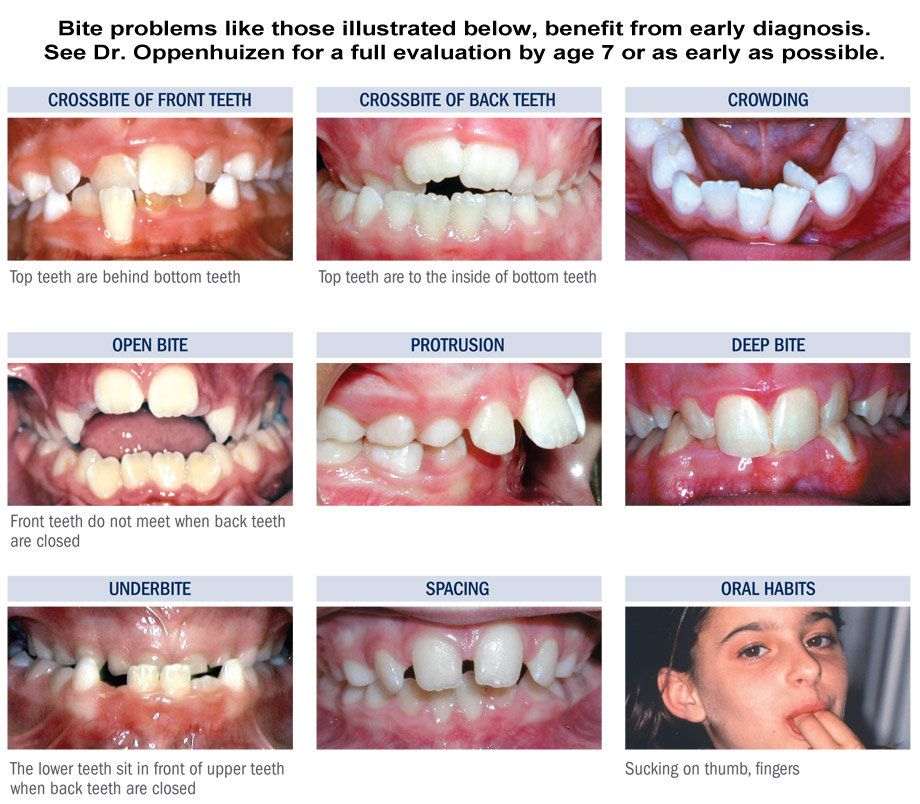Even though most people think of pre-teens and teens when they think of orthodontics, there are good reasons your child should get an orthodontic evaluation much sooner. The American Association of Orthodontists recommends a check-up with an orthodontic specialist no later than age 7.
_________________________________________________________________________
Scroll down the page to view our video
• Dr. Oppenhuizen can spot subtle problems with jaw growth and emerging teeth while
some baby teeth are still present.
• While your child’s teeth may appear to be straight, there could be a problem that only an
orthodontist can detect
• A check-up may reveal that your child’s bite is fine. Or, Dr. Oppenhuizen may identify a
developing problem but recommend monitoring your child’s growth and development, and
then, if indicated, begin treatment at the appropriate time for the child. In other cases, Dr.
Oppenhuizen might find a problem that can benefit from early treatment.
• Early treatment may prevent more serious problems from developing and may make
treatment at a later age shorter and less complicated. In some cases, Dr. Oppenhuizen
will be able to achieve results that may not be possible once the face and jaws have
finished growing.
• In some cases, Dr. Oppenhuizen will be able to achieve results that may not be possible
once the face and jaws have finished growing.
• Early treatment may give Dr. Oppenhuizen the chance to:
• Guide jaw growth
• Lower the risk of trauma to protruded front teeth
• Correct harmful oral habits
• Improve appearance
• Guide permanent teeth into a more favorable position
• Create a more pleasing arrangement of teeth, lips and face
• Through an early orthodontic evaluation, you’ll be giving your child the best
opportunity for a healthy, beautiful smile.
If your child is older than 7, it’s certainly not too late for a check-up.
Because patients differ in both physiological development and treatment needs, Dr. Oppenhuizen’s goal is to provide each patient with the most appropriate treatment at the most appropriate time.
In addition, if you notice any of the following in your child, check with Dr. Oppenhuizen:
• early or late loss of baby teeth
• difficulty in chewing or biting
• mouth breathing
• jaws that shift or make sounds
• speech difficulties
• biting the cheek or the roof of the mouth
• facial imbalance
• grinding or clenching of the teeth
Final treatment decisions should be made among the parent, Dr. Oppenhuizen and the child’s dentist.



